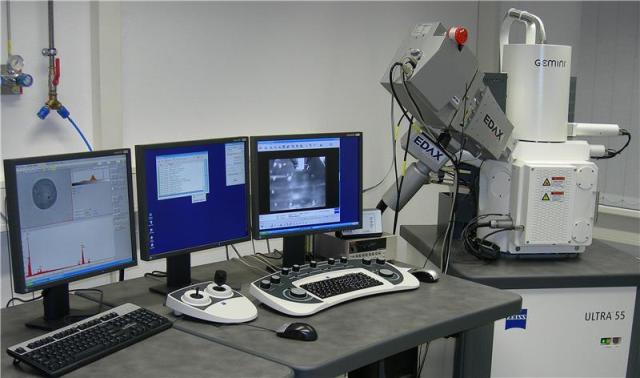Sep 26 2014
At the Center for Innovation, Research and Development in Engineering and Technology (CIIDIT), from the Faculty of Mechanical and Electrical Engineering at the Autonomous University of Nuevo León (UANL) on the PIIT in the North of Mexico, nanocomposites have been developed for the economical production of instruments directed to the metalworking industry in the region.

Virgilio González González, coordinator of the Advanced Materials area at CIIDT, explains that for many years UANL has maintained a very good relationship with the industry, especially with the metal-mechanical, with links that have been created for exchanging valuable information.
"Now we work in research between ceramic and polymeric materials that has enabled us to develop nanocomposites to improve material and mechanical properties in the manufacture of instruments. For example, we studied silicates with nanoparticles, which are incorporated in polymers of various types, some to improve mechanical properties decreasing density and weight, as well as epoxy resins (which react when mixed with a catalyst or hardener); we also studied polyester resin used to replace fiberglass which is leaving the market because its great weight.
"These materials are naturally nanostructured with some modifications that have been incorporated into materials for the industry. Its strength and mechanical properties have improved, weighting less for the manufacture of instruments."
"In the industrial sector, this innovative technology is already used by a company that is in the process of plant design for the mass production of measuring instruments; we developed the product and advise them regarding production. A secrecy agreement with the company has been signed and, if the development is patented, intellectual property belongs to CIIDIT".
Another relationship with the industry is the creation of nanocomposites for biopolymers that are used as additives in paper production; the aim is that it can be used to cover perishables and giving them higher shelf-life. "It is an inexpensive biopolymer such as starch that inhibits fungi and bacteria growth in foods; the result of this research is already applied by a company that will continue with the industrial production," relates González González.
The CIIDT is inside the Research and Technological Innovation Park (PIIT) in Apodaca, Nuevo León in the North of Mexico. It has five research areas: Advanced Materials, Nanotechnology, Mechatronics, Electron Microscopy and Scientific Computation. The building features last generation laboratories, in which different disciplines study and do research in engineering and technology.
Currently research areas are being strengthened, aimed at supporting the development of the automotive and energy industries that are booming due to the reforms that have been undertaken by the country.
For CIIDT success is measured in several directions; "For example, success in relation to companies, but also that students are placed in these companies doing important work in relation to innovation and technological development.
"Equally important is the training of students; and thanks to the better communication between the University and the industry, a dialog exists where we can talk in the same terms, a language that will meet its requirements.
"The relationship is leading to larger, high-impact and long-term projects; is an impulse to generate products with properties that were not known and developed in the country, with Mexican talent. We don’t have to look outside anymore," highlights the researcher at UANL.